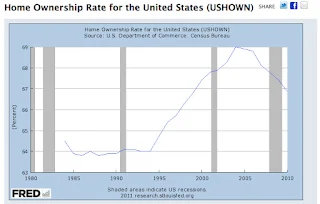Many people, rightly in my opinion, point to the decline of religious faith, traditional morality and constitutional respect for both as a leading cause of our current discontents. In making this argument, however, some fall prey to an ahistorical understanding of the priority of the 1st Amendment, and miss an important remedy which animated the founding generation just as much did the principle of religious freedom.
The latest example of the myth of the priority of our 1st Amendment to the US Constitution is repeated by none other than John Garvey, president of The Catholic University of America, for The Baltimore Sun (
link), whose other observations I otherwise find wholly unobjectionable:
[T]he right to religious freedom — the first freedom mentioned in the Bill of Rights — was of great importance to the framers of our Constitution.
Mr. Garvey operates under the common misapprehension that the 1st Amendment is somehow first because of James Madison's statements in various places about the priority of religious liberty as an unalienable right whose basis is in the creator. Accordingly Garvey quotes Madison, "This duty is precedent both in order of time and degree of obligation, to the claims of Civil Society," as if this proves why The Bill of Rights starts the way it does and that we should therefore insist more urgently that 1st Amendment considerations somehow take the lead in our civil deliberations over contentious issues, especially as affecting institutions of The Church. It is to some extent an appeal to the authority of what has primacy, which one might expect of a Roman Catholic.
If Madison could hear this, however, he would no doubt laugh, because he himself authored what was the original first amendment, and it had nothing to do with freedom of the press, the free exercise of religion, etc.
Mr. Garvey's ignorance of the historical situation is not unusual, inasmuch as most of us, if we are familiar at all with even the basic facts of history, are children of the federalists who prevailed at the founding and wrote the constitution. We do not remember the arguments of their opponents, the anti-federalists, nor the
issues which animated them, probably because we were never taught them.
The short version of a part of this very complicated history is that there was a list of at least twelve amendments proposed in 1789, and what we call our 1st Amendment was actually third in that list, which, with numbers four through twelve, was ultimately ratified while the two preceding were not. These go largely unremarked today, which is a pity because they reveal that if anything animated the minds of the founders as a matter of first importance, it was the idea of adequate representation. And it was this which was a chief pre-occupation of the anti-federalists, who viewed the constitution as a federalist conception of a defective republicanism which co-opted and undermined local constituencies and state governments. To the men of the anti-federalist camp, the more the representation, the less the chance of despotism.
As an historical phenomenon, representation's importance in the founding era formed a unity with taxation, as in "no taxation without representation."
This is why the first article of the constitution concerns itself with establishing the legislative authority, which the founders considered the predominating power in the new government, and its power to tax, both of which were to be apportioned to the states by population. Hence the census. But the constitution failed to delimit the maximum size of legislative representation, only that the number of representatives should not exceed one for every 30,000, and thus amendments were proposed.
The original amendments 1 and 2 read as follows:
Article I:
After the first enumeration required by the first article of the Constitution, there shall be one representative for every thirty thousand, until the number shall amount to one hundred, after which the proportion shall be so regulated by Congress, that there shall be not less than one hundred representatives, nor less than one representative for every forty thousand persons, until the number of representatives shall amount to two hundred; after which the proportion shall be so regulated by Congress, that there shall be not less than two hundred representatives, nor more than one representative for every fifty thousand persons.
Article II:
No law varying the compensation for the services of the Senators and Representatives, shall take effect, until an election of Representatives shall have intervened.
Because Article I was not ratified, the deficiency of the original constitution's provisions for representation, though hotly debated at the time, was never successfully remedied. The deficiency is that the constitution does not specify the "maximum district size", in the words of thirty-thousand.org (
link), which happens to be a veritable cornucopia of scholarship on this problem. Its author points out that our US House of Representatives, if it followed the constitution's original intent, would now consist of 10,000 representatives instead of just 435, a number fixed by the Congress in 1929:
Because this part of the Constitution is still “defective”, Congress can choose to grant its constituents virtually any number of Representatives it deems appropriate. In fact, Congress can choose both the number of Representatives and the algorithm by which they are allocated among the states. In contrast, the role of the Census Bureau is limited to conducting the decennial census and applying, to that result, the apportionment algorithm specified by Congress in order to calculate the allocation of House memberships.
No one alive today who takes politics seriously can say with a straight face that he feels adequately represented by any politician of any party. Gallup would not report polls indicating the extreme low esteem for Congress that it does were it otherwise. Congressmen are remote and aloof, unresponsive even to their erstwhile supporters. Senators are even worse, to say nothing of the president. This was precisely the future predicted by the anti-federalists.
It might come as something of a surprise, perhaps, to thirty-thousand.org, that the anti-federalists were none too happy even with the constitution's idea that "the number of representatives shall not exceed one for every thirty thousand." Some of them could not imagine that one man could adequately represent so many people even as that.
Madison's attempt to set the representation progressively, stopping at one per fifty thousand, indicates something of his federalist sympathies, as well the limits of his imagination as to the potential growth of the American population.
In either eventuality, it must be said, Americans today would be better represented with more representatives than the few we currently have, whose nearly impenetrable incumbency makes them a veritable hereditary aristocracy of power and indeed tyranny over the lives of the Americans the founders intended them to represent.
What we have today is representation without representation, which is why Mr. Garvey rightly feels The Church to be under attack. Too much power is concentrated in too few hands, which is just the way the opponents of all that is good, true and beautiful like it.
The last thing they want is a US House of Representatives populated with 2300 Catholics.




















